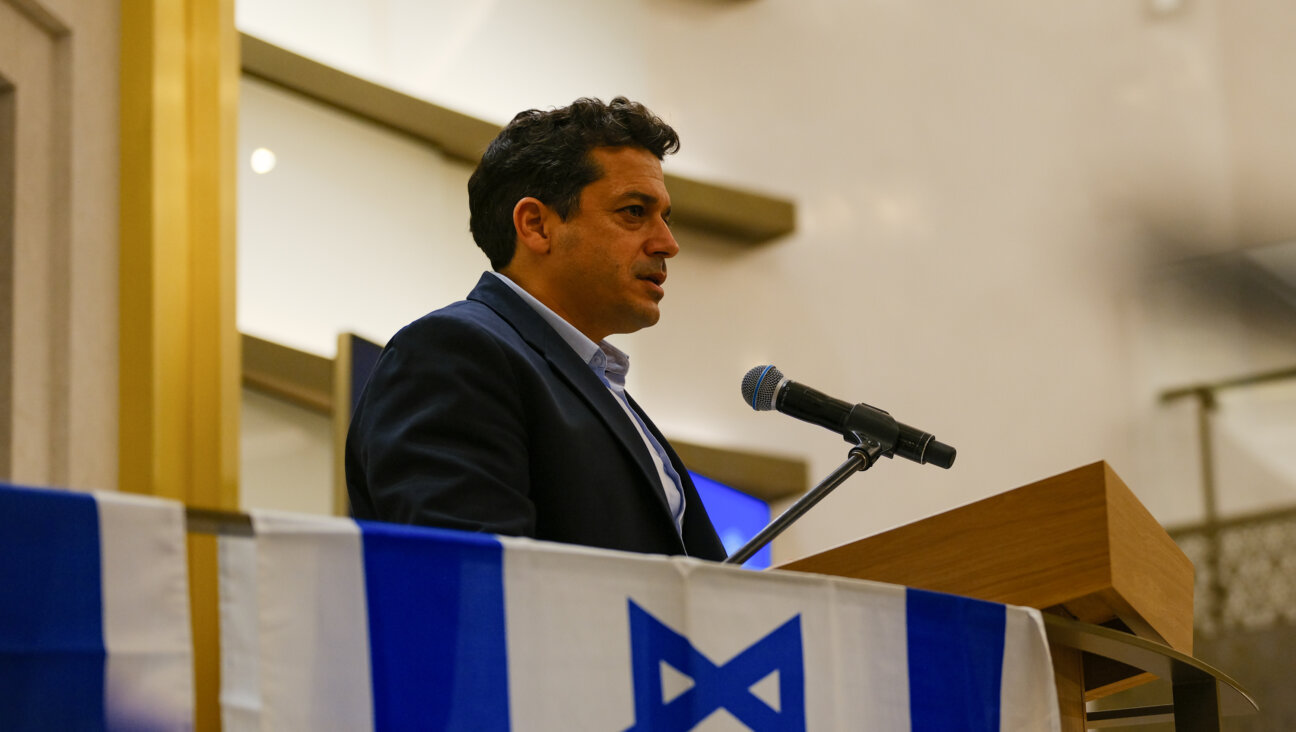Will leading Jewish groups support a crackdown on pro-Palestinian nonprofits?
AIPAC and the Anti-Defamation League support legislation that would allow federal officials to strip tax-exempt status from nonprofits they believe are supporting terrorist groups without going through normal legal channels

Leading Jewish groups are backing legislation that would allow the Treasury Department, pictured above, to strip a nonprofit of its tax-exempt status without evidence if officials suspect that it is supporting a designated terrorist organization. Photo by Getty Images
“Antisemitism Notebook” is a weekly email newsletter from the Forward, sign-up here to receive the full newsletter in your inbox each Tuesday
Some of the uptick in antisemitism and hostility toward Israel over the past year has been criminal — assault, vandalism, bomb threats — but much more of it, especially among critics of Israel, has fallen outside of the legal realm. It is essentially about the expression of people’s beliefs: That Zionists should be shunned, for example, or that Hamas represents legitimate resistance to Israel’s actions toward Palestinians.
Many Jewish organizations have been trying to employ legal tools to crack down on the public promotion of these beliefs, which they see as harassment or worse of Jewish people, especially on college campuses. They are likely to find allies in the new Republican administration.
For example, back in October 2023, the Anti-Defamation League teamed up with Ken Marcus, a top civil rights official in the last Trump administration, to ask nearly 200 university presidents to investigate whether their campus chapters of Students for Justice in Palestine were “providing material support to Hamas.”
That would be a serious felony, since the United States designated Hamas a terror organization decades ago. I am unaware of any evidence of student activists funneling financial or other things considered “material support,” which federal law defines as providing “funds, goods or services” to a terrorist group that the group would have otherwise had to spend its own money on. In the past, when when pro-Palestinian groups have been successfully prosecuted under such statutes, the allegations have centered not on speech or political activity but on the actual transfer of funds from American donors to Palestinians affiliated with Hamas.
But that could change under the next Trump administration. Project Esther, drafted by some of the same influential GOP policymakers who assembled Project 2025, has suggested using a host of laws to target what it describes as a “Hamas Support Network,” composed of groups including Jewish Voice for Peace, the Tides Foundation and the Rockefeller Brothers Fund. Those laws include the Foreign Agents Registration Act, Racketeer Influenced Corrupt Organizations Act and unnamed “counterterrorism, hate speech, and immigration laws.”
Using immigration laws to punish immigrant activists engaged in otherwise legal political activism would raise serious civil liberties concerns. Several leading Jewish groups complained that they were shut out of the planning process for Project Esther, so it remains to be seen whether they would support taking the measures it suggests.
One hint, though, may lie in AIPAC and the ADL having endorsed legislation that would allow the Treasury Department to classify a nonprofit as a “terrorist-supporting organization” and revoke its tax-exempt status without first going to court. That classification would effectively destroy the group’s ability to raise money.
The bill failed to advance in the House on Tuesday, winning a majority but not the required two-thirds. But it could be revived in the next Congress, despite opposition from the American Civil Liberties Union, Bend the Arc, Workers Circle and more than 100 other mostly liberal nonprofits. They argued that “the lack of guardrails creates the potential for future administrations to weaponize these powers against groups on both ends of the ideological spectrum.”
That is one reason that I’m struck by the ADL’s support for the policy. The organization has critics from both sides of the spectrum — the left accuses ADL of overreach against anti-Zionists, and the right assails the group for launching witch hunts against conservatives and trying to destroy X, formerly Twitter, for ideological reasons.
Empowering the executive branch to render summary judgment against nonprofits it dislikes could have unintended consequences for the ADL and other Jewish nonprofits.
I asked ADL about this, and a spokesperson said the group supports “strong due process,” but that “it should go without saying that any organization providing material support to a foreign terrorist organization does not deserve the privilege of tax-exempt status.”

















